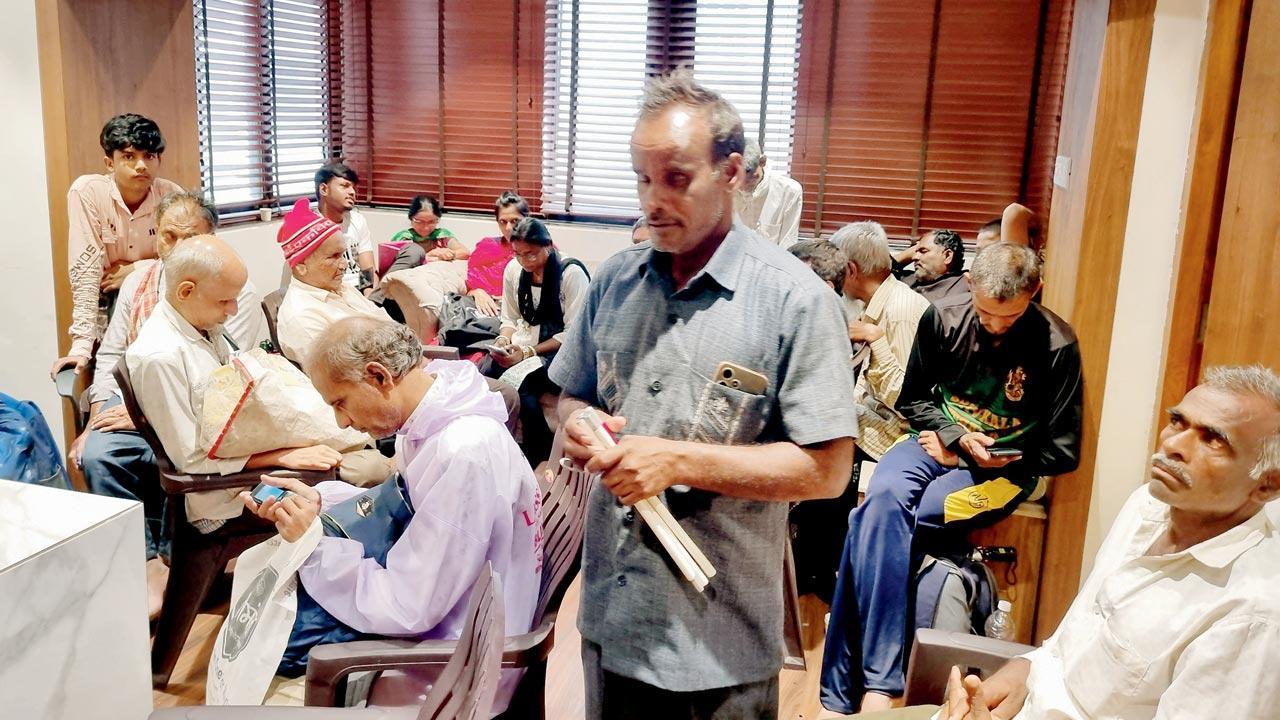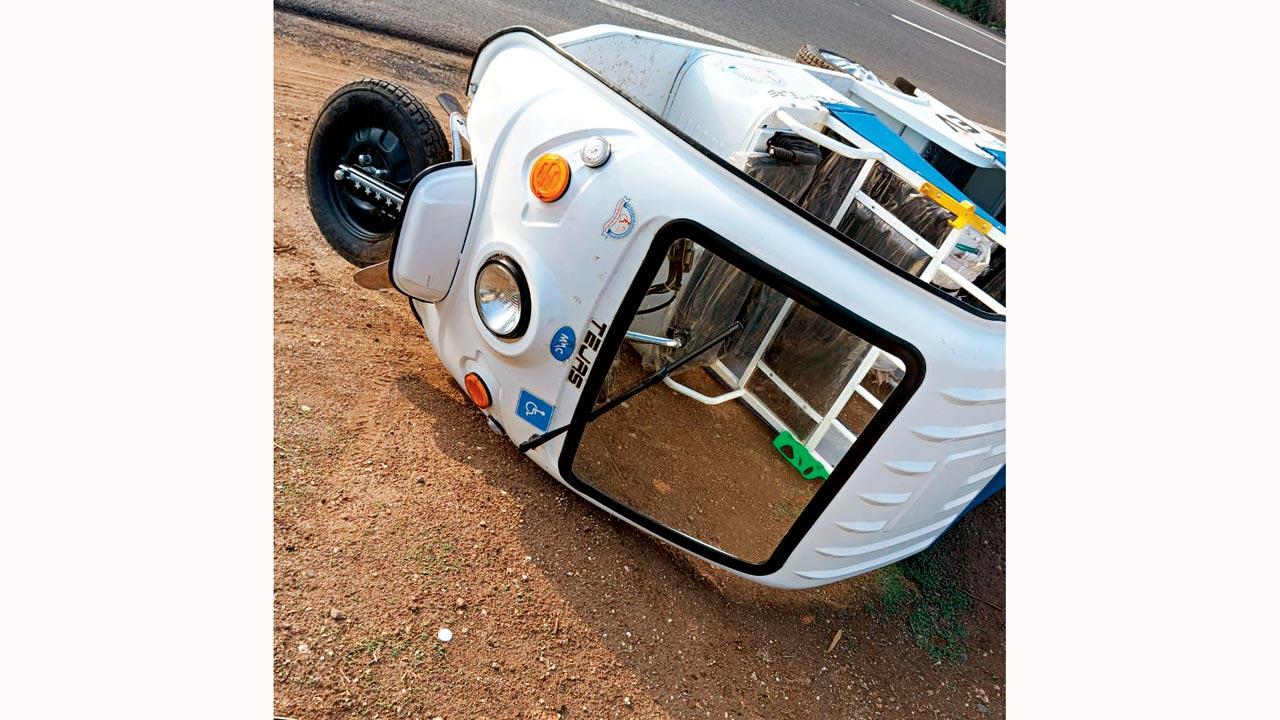Poor-quality vehicles lead to complaints and accusations of corruption

Differently abled individuals occupy the Nariman Point residence of MLA Bacchu Kadu, the chairperson of the state-level Divyang Welfare Committee
Hundreds of people with disabilities in the state feel they were misled by the government after discovering that the e-rickshaws provided to them were of poor quality. On Thursday, around 25 of these individuals, including many visually impaired persons, occupied the official residence of the state-level chairperson of the Divyang Welfare Committee, MLA Bacchu Kadu, at Nariman Point.
ADVERTISEMENT
Earlier this year, the government invited applications for e-rickshaws intended to support self-employment for disabled individuals. Out of 45,389 applications received, 600 were allotted e-rickshaws, with another distribution round planned for the second half of the year.
People began receiving the vehicles in May, but faults became apparent within days.
 The e-rickshaws collapsed due to poor balance
The e-rickshaws collapsed due to poor balance
Ranjana Mali, a Pune resident whose husband has a hearing impairment, hoped the e-rickshaw would provide a decent income source. “It worked for only one or two days before collapsing. We had started a vegetable business with it,” she said.
Anil Kevat, a visually impaired resident of Aurangabad, reported, “The vehicle stopped working before it could even reach home. It had to be towed. There is no servicing available anywhere.”
Both Mali and Kevat were among the 25 who travelled to Mumbai seeking a resolution. The e-vehicle provided, named Mac Tejas, is manufactured by Mac Auto India.
The company’s service representative confirmed receiving about 200 complaints from beneficiaries and assured them that the company is assisting them.
“Some complaints involve motor issues, others battery problems. Most of these are minor,” claimed Nagendra Rai, service manager with the company.
He noted that beneficiaries were trained before receiving the vehicles and advised not to leave them idle for more than 15 days to prevent battery drainage. “This advice was not followed,” Rai said. He also mentioned complaints about vehicle imbalance, which makes it prone to accidents, but added, “It’s a matter of getting used to driving. Once people are comfortable, they won’t have the same issues.”
A letter from representatives of the disabled communities to Abhay Kargutkar, director of the Maharashtra State Handicapped Finance and Development Corporation (MSHFDC), states, “The charging battery capacity of these e-rickshaws is poor and does not last 20 km as claimed by the company. Some batteries don’t charge at all. The e-rickshaw cannot climb hills and is prone to accidents due to poor balance.”
Speaking to mid-day, Kargutkar confirmed the receipt of several complaints. “We are evaluating all complaints, and if they are found valid, the vehicles will be repaired or replaced as needed.”
The disabled community is also alleging corruption in the scheme, noting that Rs 3.75 lakh was allocated per beneficiary, while the market cost of the vehicle is over a lakh.
Sudhakar Salve, another visually impaired individual, said, “They think we are fools. Why has the company provided us with a cheaper model?”
Kargutkar responded, “The Rs 3.75 lakh includes additional costs like maintenance, not just the vehicle. I have informed my seniors that if faults are found, I should be transferred from my position.”
600
No. of people given e-rickshaws
 Subscribe today by clicking the link and stay updated with the latest news!" Click here!
Subscribe today by clicking the link and stay updated with the latest news!" Click here!












